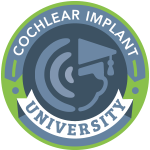IDEA
The Individuals with Disabilities Education Act (IDEA) is a federal law that guarantees to every student with a disability in need of special education, between the ages of three and 22, a free appropriate public education (FAPE). IDEA defines FAPE as special education and related services provided at public expense provided through an Individualized Education Plan (IEP).
Under IDEA, schools must identify students with disabilities and determine how best to provide special education, related services, and educational accommodations to help the student access education.
To evaluate a student for educational accommodations and services under the IDEA, the school brings together a team of education and health professionals and the student’s parents. This team is called the Individualized Education Plan (IEP) team. The IEP team determines the student’s needs and the special education services and accommodations that will address those needs.
The outcome of the IEP meeting is an IEP, which is a written document that describes the student’s strengths and challenges, establishes a blueprint of his or her academic and social goals for the year, and describes the special education services and accommodations that the student will receive from the school.

